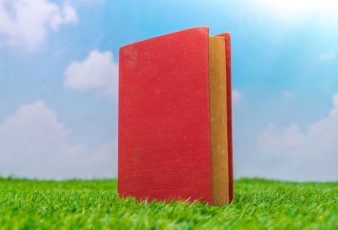Writing a library science dissertation is both an important and challenging project in your academic life that you must carefully attempt to ensure good grades. Your writing must be completely error-free and ready for submission before the due date.
For this purpose, you have to start its preparation from day one and continuously work on it like a professional. To help you in this tough time, we have designed a 10 simple steps guide that will give you confidence and support.
Data USA shows the statistics of library science. In 2021, 6,538 degrees were awarded in library science, marking a growth of 10.9% compared to previous years. Among the institutions, Clarion University of Pennsylvania stood out with the highest percentage of degrees awarded in this field, with a 99.2% acceptance rate.
Thus, the demand and trend towards library science education is increasing among students. The only difficulty they face is writing a library science dissertation, which demands your expertise and knowledge. We are here to solve this issue too with our easy guide to help you navigate through this challenging phase with expertise. Read on to learn more about writing dissertations on library science.
What Is Library Science?

Library science, also known as information studies, is an academic area that deals with organizing and utilizing data and materials, with a strong focus on preserving knowledge and encouraging literacy.
While some universities, such as the University of Washington, prefer the term “library and information science,” the essence remains the same. This profession attracts individuals dedicated to making a difference and often find joy in their work. Librarians play a vital role in connecting people, information, and technology, filling in the gaps that may exist between them.
10 Steps Comprehensive Guide To Write Library Science Dissertation
So, you have taken a step ahead and started working on your dissertation. While working on such a challenging and demanding task, you often need dissertation writing help from experts. So, hiring a professional dissertation writer would handle the situation well and also guide you through each step.
In addition, we are also presenting a step-by-step guide to help you in this challenging time. Use these expert pieces of advice to take the right approach for your library science dissertation:
1. Select An Engaging Topic
The basis of your entire project is your dissertation topic. It needs to be a topic that excites you and fits up with your long-term professional objectives in library science. It should ideally be a topic that has enough previously conducted research to give it a solid foundation, with something new to contribute. Think about your areas of interest within this broad field and choose an interesting library science dissertation topic.
2. Review The Literature
It’s very important to review the literature before starting to work on your study project. A thorough assessment of the literature gives you knowledge about your topic and also opens up your mind. For this, you should use the plethora of resources your library offers, such as scholarly publications, online databases, and reliable websites, to find out what previous studies have been done in this field.
The literature review assists you in determining any gaps in the state of knowledge on which you can continue your work. It also increases your vision to understand others’ viewpoints before writing your library science dissertation.
3. Create A Compelling Thesis Statement

Create a strong thesis statement that summarises your dissertation’s primary point of contention or topic. Your thesis statement needs to be precise, succinct, and supported by data from your investigation. Try to keep it clean and safe from ambiguity because a straightforward statement makes the understanding easier.
4. Make An Outline
As we all know, an outline explaining every step of the library science dissertation journey acts as a roadmap to easily navigate through these tough phases. Students must make a plan first and strictly follow all the steps at the proper time.
So, create a logical structure in an outline by arranging your thoughts and research findings. This will help you keep focused while writing and act as a success road for your dissertation.
5. Develop Your Methodology And Research Question
After you have familiarised yourself with the current body of research, it is time to develop the main library science dissertation research questions. These queries will serve as the framework to lead the reader throughout your dissertation. This should be a manageable research question that is clear, succinct, and specific enough.
The next step is to specify your methodology, which is the plan outlining how you will respond to your research topic. It includes polling library users, speaking with librarians, or examining user information from database searches.
6. Analyse And Conclude
The next stage is to carefully analyze the data you’ve gathered, whether it was through interviews, surveys, or other means. Then, you should select analytical tools that are in line with the methodology you have decided on. Sorting through the data and spotting trends and patterns, are all part of this library science dissertation research. Reporting raw data is not enough; you should also critically evaluate it and come to well-reasoned conclusions that address your research issue.
7. Structure Your Dissertation Clearly

Your dissertation’s structure is essential to providing your reader with clarity and coherence. How do you write a library science dissertation? Well, a dissertation on library science will usually consist of the following sections: introduction, literature, methods, results, discussion, conclusion, and references. By introducing the subject, your research question, and its importance, the introduction provides context for your study.
While the literature review dives further into previously published studies, the methodology describes how you went about doing your study. Your findings are presented in the library science dissertation results section, and their implications are interpreted and discussed in the discussion section.
Lastly, the conclusion highlights the significance of your research findings to the field by restating your main findings and summarising your research journey. At the end, make a reference list to cite all the sources used.
8. Write With Clarity
Your dissertation’s writing style is equally as crucial as its topic. Create a compelling, objective, and clear academic voice. Moreover, you should avoid using overly technical terminology and jargon that could turn off your reader. Throughout your work, have a formal tone and use the active voice and correct language to make your writing easier to read.
9. Properly Cite Your Sources
Academic honesty requires you to provide due credit to the sources you used for your research and library science dissertation writing. Make sure to properly credit each one of your sources by using your institute’s citation style guide, like APA or MLA. When you properly credit your sources, readers may quickly follow your line of inquiry and confirm the data you’ve provided.
10. Polish By Editing And Proofreading
After completing your dissertation for library science, your work doesn’t end there! Give careful editing and proofreading plenty of your time. This is the part where you go through your work very carefully, looking for typos, formatting mistakes, and grammatical errors.
Do not hesitate to ask your dissertation supervisor and reliable peers for input. Their novel viewpoints may assist you in pinpointing areas that require refinement and guarantee that your work is flawless before submission. Alternatively, seeking assistance from Dissertation Editing Services UK is another great option in this regard. With a team of expert writers having immense experience in their fields, they offer next-level suggestions and make your project stand out.
Read Also: 5 Blogs That Will Help You Write Essay Like A Profi
Library Science Dissertation Topics for 2024

Looking for the right topic to start your journey of dissertation writing? Well, your topic selection has a great impact on this whole year of hard work, so try to choose it wisely. To give you some ideas about the hot trending topics, we have chosen the following prompts:
- Career Paths in Library Science – A Focus on Becoming a Public Librarian
- Exploring How Libraries Adapt in the Information Age
- A Comparative Analysis of Types of Libraries
- Exploring Ways to Build Collections for Academic Programs
- Strategies for Building Specialised Collections in Library Science
- Studying Information Resources Management in Academic Libraries
Library Science Dissertation Examples
According to Western University, the following are some examples that you can use to get an idea about dissertations on library science. They have also presented complete dissertations on various titles, including these so that students find it easy to work on their projects.
- Folk Wisdom, AI, and Us: Making Artificial Intelligence Understandable
- Transforming the Public Library into a Living Archive
- Comparing Accessibility in Academic Libraries: Insights from Claire Burrows’ Case Study
- Exploring Rights and Information Access at Six Nations Public Library
- The Impact of Experience on Our Information Landscape: Insights from Work, Play, and Daily Life
Conclusion
We all know that you are going through a very challenging phase because writing a library science dissertation is not child’s play. But to write it like a pro and significantly contribute to your field, you should strictly follow these 10 essential steps. It mostly covers a complete explanation, from topic selection to researching the existing literature and then structuring your dissertation by following proper formatting guidelines.
Make an end by editing and proofreading all the work again and again. Along with that, you should also consult your teachers, peers, fellows, and experts for their input and guidance from time to time. All of these measures will make you an expert writer and assist you in completing your project like a pro!
Read also:





























All Comments
temp mail
Hi, member of my family. I just wanted to say how fantastic this article is—it's nicely written and has nearly all of the important details. I hope to see more content similar to this one.